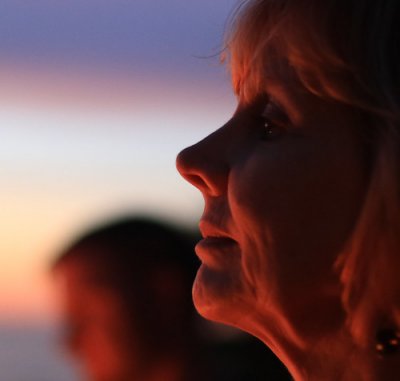“Why Do I Feel Empty Inside?”

photo by Hayley Catherine
Trying really hard to keep it going, but most of the time just left thinking, “I feel empty inside”?
Why do I feel so dead inside?
There are actually times in life it’s quite normal to feel empty inside. Other times when we need to numb out briefly as a survival tactic. And then times when feeling dead inside for no apparent reason is a sign there is a lot more going on than we realise, and we need to pay attention. This article discusses:
- grief and loss
- emotional shock
- PTSD and c-PTSD
- depression
- loneliness
- the sociopathy spectrum.
Grief, loss, and feeling numb inside
Have you recently experienced a bereavement, big life change, or loss of some kind?
It’s normal to feel empty inside after a loss. Grief can go on for months, and then can hit on and off for years.
And it’s not just bereavement from losing a person or beloved pet that can cause grief. We can also be grieving if we:
- are made redundant from a job that we loved
- or are forced to take an early or unwanted retirement
- become an empty nester
- have to move country and leave our culture behind
- experience an accident or illness that changes our functionality
- lose a very precious item with great personal value.

By: Kevin Dooley
In such cases, it’s important to recognise that you are in an adjustment period. You’ve had a shock, and you are recalibrating, so to speak.
It’s as if our brain goes into overwhelm, and turns on the cruise control for a bit until it gets its bearings and can figure out how to cope and thrive again.
Emotional shock
Did you recently get surprised by a difficult situation out of your control? An accident, crime, or natural disaster? Felt exhausted ever since, and less able to cope?
Emotional shock is not a medical diagnosis, but it’s a term used to describe the after effects we can experience after a trauma.
If you are in emotional shock, you will feel numb and empty, alongside symptoms like:
- jumpiness/being on edge
- mood swings
- social withdrawal
- substance abuse
- changes to eating and sleeping.
Emotional shock tends to wear off in a few weeks and we slowly get back to normal. If it doesn’t wear off, if it goes on or on or if symptoms worsen, then it’s possible it has become post-traumatic shock syndrome (PTSD).
PTSD and complex PTSD
Have you felt numb ever since experiencing a trauma, or since childhood?
Post-traumatic shock disorder from a traumatic experience can mean we veer from fits of rage and upset, to feeling totally dead and empty inside. It’s as if our emotional thermostat now has ‘hot’ or ‘off’, but struggles to be anything in-between.
But what if there was no big recent trauma, but you feel as if you’ve spend most of your life asking, ‘why do I feel empty inside’?
 If you had a difficult childhood with a series of traumatic experiences over one big trauma, you might have what is now referred to as ‘complex trauma’ or ‘c-PTSD’.
If you had a difficult childhood with a series of traumatic experiences over one big trauma, you might have what is now referred to as ‘complex trauma’ or ‘c-PTSD’.
I have no idea why I feel empty inside
Has there been no recognisable trauma, no big event to speak of? Your childhood was average? But lately you feel like a cast member of the Walking Dead?
It is likely to be depression. Depression is a spectrum of low moods that often descend without an exact reason.
Sufferers report feeling as if they are pushing through sand, and as if their head is full of fog. Other symptoms include:
- feeling exhausted even if you sleep
- general hopelessness
- negative thoughts about the world and yourself
- changes to eating and sleeping
- social withdrawal.
Sometimes depression happens as a seemingly small event triggers old emotions and experiences that are unresolved. In a way this can be a positive, if we then seek support and end up healing our hidden wounds.
Being suddenly depressed despite a wonderful new job might lead us to realise that a rude colleague has triggered old feelings about being bullied as a child. It’s a chance to process that pain and finally move on.
Depression, or loneliness?
Find yourself in a situation far away from friends and loved ones? Or have you reached a point in life where you’ve given up on real connection? And just feel let down by those around you?
Our new ‘ultra connected’ technology has contributed to an ‘ultra unconnected’ society. It’s as if there is another pandemic buzzing in the background, a pandemic of loneliness.
Britain’s Campaign to End Loneliness charity suggests 45% of us, almost half, are living with feelings of loneliness.
It’s all too easy for doctors to tell someone they have depression without asking about their social situation. A prescription of anti-depressants will just mask symptoms, not help you learn to find new friends and form lasting, supportive connections. And it’s arguable that many fast diagnoses of depression could be re-diagnosed as severe loneliness.
But I’ve always felt empty inside, can that just be normal?
- Never quite understood everyone’s obsession with emotions?
- Or wonder why everyone seems so sure of who they are when you change to suit?
- Deep down have you long worried if there is something very different about you?
- Always feeling like you are playing an extended, advanced game of pretend?
It’s possible you are on the sociopathy spectrum. Despite the clichés, sociopathy is not an instant ticket to a life as a criminal or terrible person. It means you don’t naturally have a wide emotional spectrum and have to learn emotions and empathy. Sociopathic people can choose to be useful, contributing citizens as much as anyone can. You just need support in learning how to understand others and how to get your needs met with communication over manipulation.
Are you depressed, suffering from PTSD, or worried you might have a personality disorder? We connect you with a team of friendly, expert mental health professionals in central London. Or you can use our booking platform to find affordable talk therapists UK-wide or online therapy you can access from other countries.
 Andrea M. Darcy is a health and wellbeing writer as well as mentor, trained in person-centred counselling and coaching. Her favourite subjects are trauma, relationships, and ADHD. Find her on Instagram @am_darcy
Andrea M. Darcy is a health and wellbeing writer as well as mentor, trained in person-centred counselling and coaching. Her favourite subjects are trauma, relationships, and ADHD. Find her on Instagram @am_darcy




